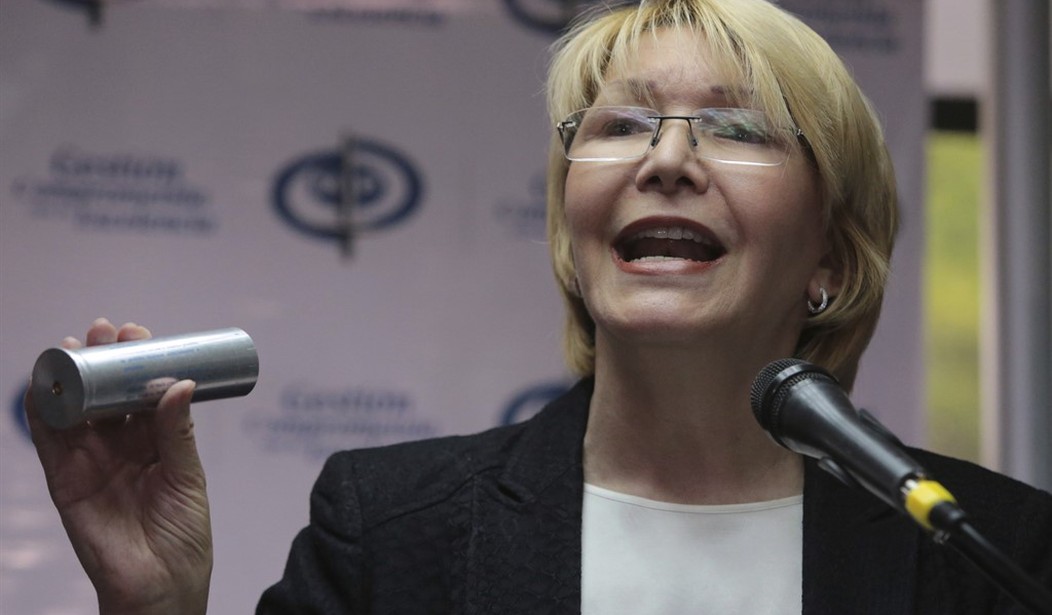The Atlantic has an interesting piece today on some of the cracks in the socialist government that could eventually lead to its collapse. Because it will come down to the choices of a handful of key players, the change could come at almost any moment. One of the key figures in the story is a prosecutor and, until recently, government supporter Luisa Ortega.
Back in March, after the Supreme Court attempted to seize power from the National Assembly, Ortega called it a “clear rupture of the constitutional order.” That was her first break from the government line. Then in April as protests against the attempted coup continued, Ortega denounced the violence. Though her statement was phrased in a neutral way, the implied criticism of the government was seen as significant.
This month, Ortega denounced President Maduro’s move to create a new constitution, though she phrased her criticism in terms of her commitment to the current constitution (adopted under late President Hugo Chavez) it was still a big break from the government. And as Jazz reported last week, Ortega made an even more significant break with the government this month when she announced that a young protester had been killed by the National Guard, not by other protesters as the government had claimed. So Ortega has started to show an independent streak. The question is: Could she help to bring down the Maduro regime and if so how? From the Atlantic:
Ortega, as head prosecutor, could file a request before the Supreme Tribunal to review the merits to have the president sit trial for forcing an illegal constituent assembly, or for instigating violence against the protesters, which has caused over 50 violent deaths in the past few weeks. This process requires the approval of at least 17 of the 32 judges of the court. Until now only judges Danilo Mojica and Marisela Godoy have spoken out against Maduro’s constituent assembly. They say the assembly would violate the constitution, and that Venezuelans need an electoral option to replace him.
A majority of the court, which was packed with President Maduro’s socialist cronies, will never agree to move against him. But there is another option:
But before embarking on such a high-stakes course, Ortega, far from the hardline chavista she once was, may first move to challenge the constituent assembly in court. Her office has been leading several investigations on government violence during this protest cycle. This puts pressure on the military, which has been largely responsible for the violence. The regime also relies heavily on the military to maintain its hold on power. It may have the last say on the timing and form of a potential transition out of the Maduro era. Whatever the aftermath, the military will still be important players—a fact that that political forces in Venezuela must come to terms with.
So the idea here is that Ortega could stand up to what is clearly an illegal power grab by Maduro (a constitutional assembly requires a vote which hasn’t happened) and thereby create public space for more opposition to the President. Ultimately, it will come down to what the military decides to do. But as the case of Luisa Ortega demonstrates, people aren’t locked into one political position forever. Sometimes things get bad enough that they change their minds. Hopefully, images like this will help members of the military pull away from the Maduro government as well:
ÚLTIMA HORA | La foto que da la vuelta al mundo: GNB disparando a QUEMARROPA contra manifestantes opositores en Caracas #31May pic.twitter.com/adgIhGD2QX
— AlbertoRodNews (@AlbertoRodNews) May 31, 2017
It reads, “LAST MINUTE | The photo that goes around the world: GNB firing at point-blank range against opposition protesters in Caracas #31May”







Join the conversation as a VIP Member